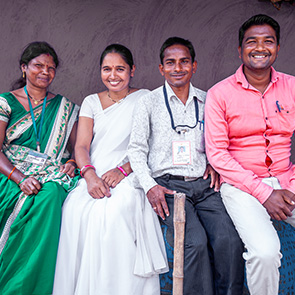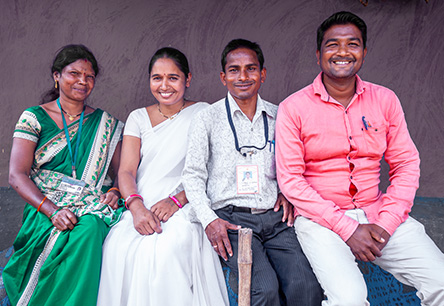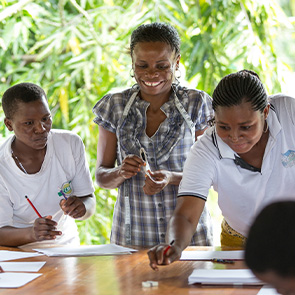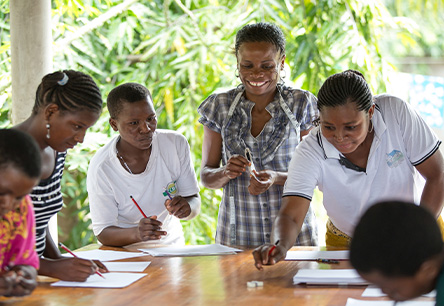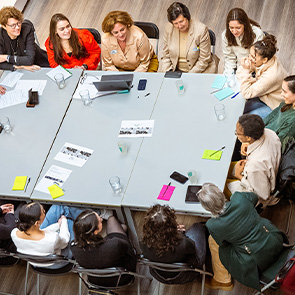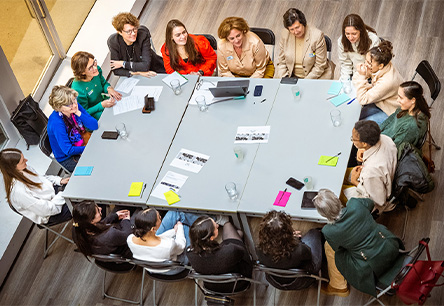At Johnson & Johnson, through our J&J MedTech business segment, we are helping transform the future of medical intervention by tackling some of the world’s most pressing healthcare challenges across several surgical fields.
Advances in surgical technology have transformed medical care for most high-income countries, yet quality surgical care remains largely out of reach for people living in low-income countries. As many as 5 billion people13 do not have access to quality surgical care—closing this gap is critically important to advance global health equity.
Of the 313 million surgical procedures undertaken worldwide each year, only 6% occur in the poorest countries, where more than a third of the world’s population lives.14
J&J MedTech’s Global Core Capabilities
Ethicon
surgical technologies, including advanced digital solutions and robotics
DePuy Synthes
orthopaedics, including joint reconstruction, trauma, spine, sports and robotics
Interventional Solutions & Specialty Surgery
neurovascular care; heart rhythm disorders; ear, nose and throat treatment; and breast reconstruction
Johnson & Johnson Vision
specialist eye healthcare, including the most advanced intraocular and contact lenses
Johnson & Johnson is committed to elevating the standard of care in surgery by bringing insights, scale and new technologies to meet the needs of more people in communities with limited surgical capacity around the world. We deploy our global surgery capabilities together with our collaborators and aim to address healthcare inequities, expand patient access, improve outcomes and reduce health system costs. Our commitment to changing the trajectory of surgical care is encompassed in our Health for Humanity 2025 Goals, and we have made strong progress so far.
Accelerating access to surgery
At the 75th World Health Assembly in May 2022, we launched our Global Surgery Initiative with the goal of advancing the entire continuum of surgical care—from prevention to treatment to rehabilitation—across two significant areas of unmet need, obstetric fistula and long bone fracture. We announced the beginning of pilot programs in these two areas in Kenya and Malawi, working with government, academic and NGOs to strengthen surgical systems. Combining the strengths and expertise of Johnson & Johnson with global and local collaborators, we aim to accelerate access by streamlining supply chains, reducing costs and better equipping surgeons and health systems to meet the needs of the patients and communities they serve.
8,800 obstetric fistula repair surgeries supported through Johnson & Johnson’s suture donation program over two years (2021–2022)
Improving surgical instruments for obstetric fistula repair surgery
Obstetric fistula is a serious childbirth complication that is preventable with improved practices and treatable with access to surgical care. Johnson & Johnson helps to improve care by developing and providing access to improved surgical instruments: fistula scissors, bladder sounds and suture/catheter organizers. These improvements aim to provide high-quality instrumentation to increase patient comfort, maximize surgeon visibility and improve safety for both the patient and the surgeon. We work with expert collaborators to help train surgeons and frontline health workers on the effective use of these instruments. In 2021, for example, we trialed the new surgical instruments at the Freedom from Fistula Hospital in Sierra Leone in collaboration with Dr. Rachel Pope, Associate Professor, Urology Institute, University Hospitals Cleveland Medical Center.
In 2022, we progressed to further trials of these instruments in Kenya, where more than 1,000 new cases of obstetric fistula are recorded each year.15 As part of our ongoing program, we seek feedback from surgeons to inform future innovation and help scale surgical capacity countrywide to reach even more women suffering from obstetric fistula.
Johnson & Johnson was one of the first companies to partner with Dr. Catherine Hamlin at the Addis Ababa Fistula Hospital in Ethiopia, beginning in the 1980s, with the donation of sutures for fistula surgeries.
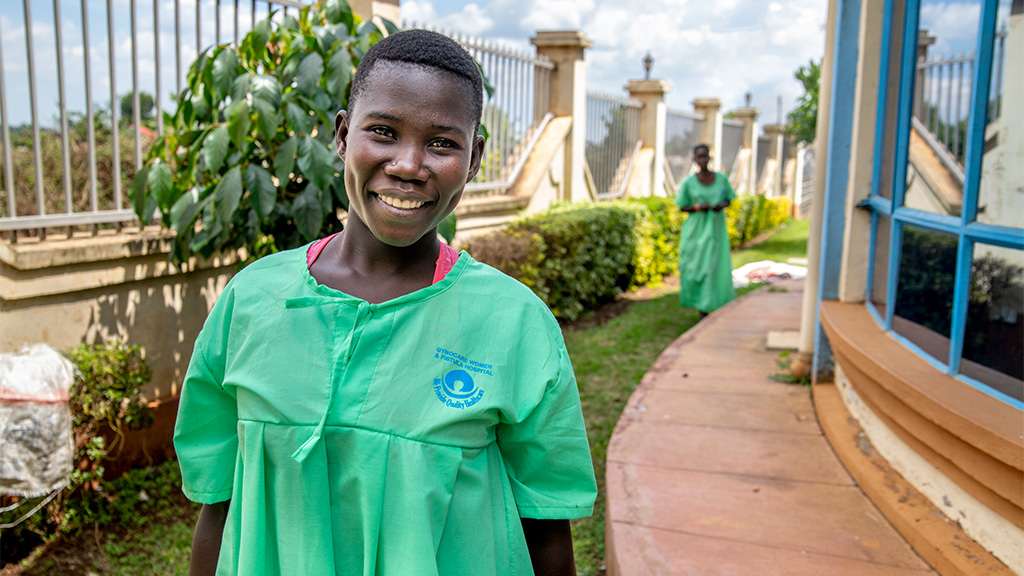
Collaborations to reduce the burden of obstetric fistula
Along with the Johnson & Johnson Foundation, we again supported obstetric fistula procedures and donated surgical products to the Fistula Foundation Treatment Network. Together with Direct Relief, we delivered our sutures and new instruments to nine hospitals in the Kenya Fistula Treatment Network. Working with these improved instruments and supported by training, surgeons were able to perform safe obstetric fistula repairs for more than 1,300 women in Kenya in 2022.
Between 50,000 and 100,000 women each year suffer from obstetric fistula.16
In 2022, we also continued to support ongoing obstetric fistula education for surgeons through our nearly 30-year collaboration with Mercy Ships, the largest non-governmental fleet of hospital ships in the world. Our support has helped hundreds of surgeons and operating room specialists receive advanced training by collaborating to design essential skills training and provide hygiene kits and surgical products.
Health for Humanity 2025 Goals
View ScorecardProgress in Reducing Burden of Obstetric Fistula
- In 2022, supported delivery of 5,600 obstetric fistula repair surgeries for a cumulative total of 8,800 since the beginning of 2021.
- New surgical instruments piloted in Sierra Leone in 2021 and expanded to Kenya in 2022 to increase patient comfort, maximize surgeon visibility and improve safety for the patient and surgeon.
- Continued support of healthcare workers through Fistula Foundation.
On track
Improving access to care for long bone fracture
Left untreated, long bone fractures, a crack or break in the tibia or another long bone, can result in long-term disability. Johnson & Johnson is working in Malawi to help train surgeons with novel tools and techniques and strengthen supply chains to improve sustainable access to surgical trauma care for people in need. In 2022, supported by the Johnson & Johnson Foundation, we launched our Long Bone Fracture Pilot Program in Malawi, introducing novel devices, strengthening supply chains, training district-level providers to complete procedures and elevating operating room processes for a better patient and care team experience. Our aim is to scale this initiative to other LMICs, building on our experience in Malawi.
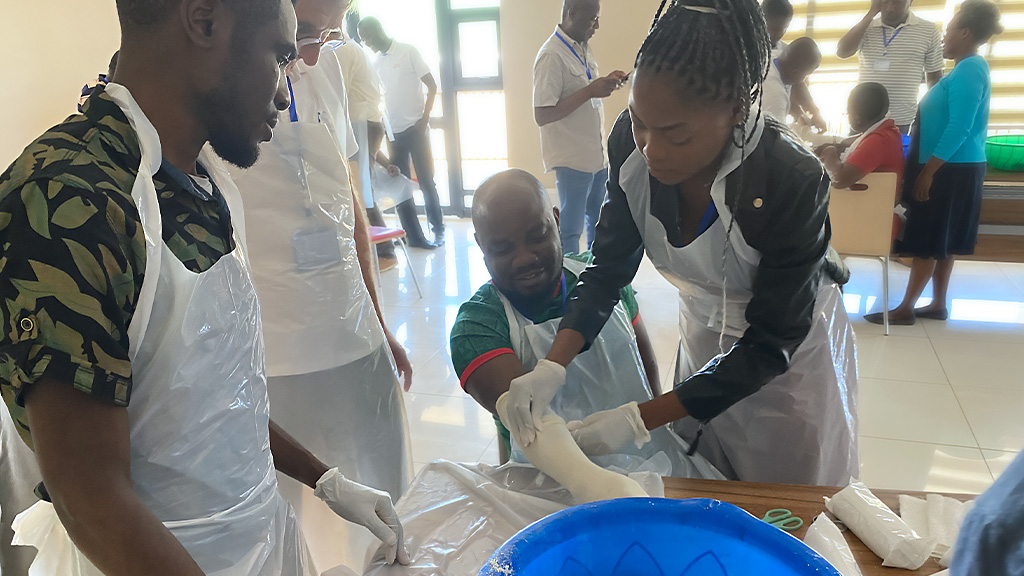
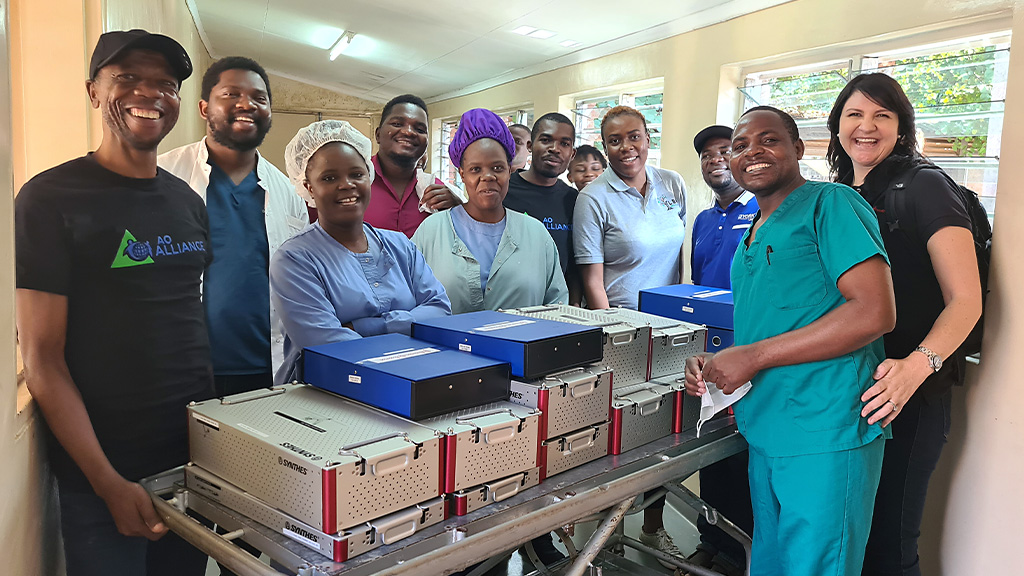
13 The Lancet, “Global Surgery 2030: evidence and solutions for achieving health, welfare, and economic development,” https://www.thelancet.com/journals/lancet/article/PIIS0140–6736(15)60160-X/fulltext, accessed February 2023.
14 Ibid.
15 UNFPA Kenya, “Fistula camp tackles COVID-19 related backlog of cases to restore dignity to women,” https://kenya.unfpa.org/en/news/fistula-camp-tackles-covid-19-related-backlog-cases-restore-dignity-women, accessed February 2023.
16 WHO, “Obstetric fistula,” https://www.who.int/news-room/facts-in-pictures/detail/10-facts-on-obstetric-fistula, accessed February 2023.



